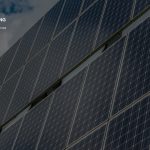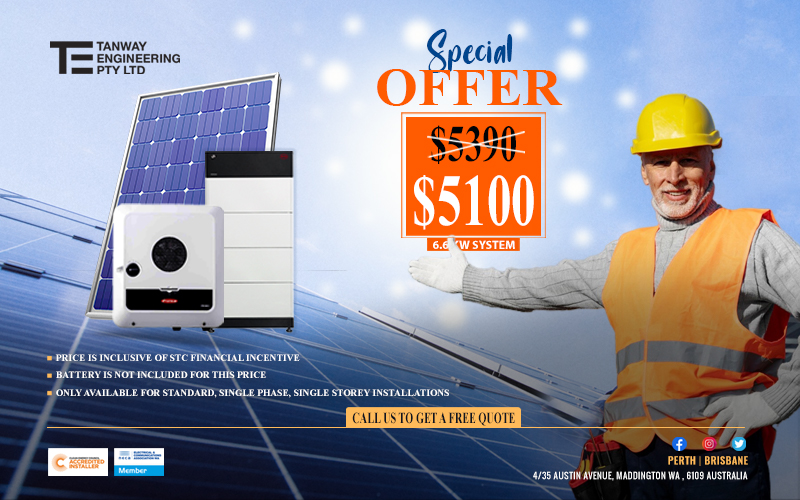Things You Should Know About Solar Radiation And Solar Flux

Solar energy has become a complete solution to all your electricity needs and puts an end to unbearable electricity bills.
Every domestic and commercial rooftop solar panel system in Perth focuses on collecting solar radiation, measuring the solar flux, and converting it into renewable energy like heat and electricity.
This blog discusses everything you need to know about solar radiation and solar flux in detail.
Solar Radiation Vs Solar Flux
Solar radiation is the electromagnetic radiation the sun emits, which you can capture and tune to bring useful forms of energy.
Eager to know what solar flux is? It is also solar radiation, but for a specific area.
Solar flux density measures the electromagnetic solar radiations, otherwise called solar irradiance for every unit area.
The cost-effectiveness and technical aspects of solar energy-based systems consider the factors such as the area where you install the panels and the availability of the radiation.
Many businesses opt for the commercial solar system in Perth, to save on the costs and generate electricity using an inexhaustible source of energy.
What determines the solar radiation in a particular location?
The latitude, year, day, atmosphere, topography, ozone, and altitude tell the intensity of solar rays in a specific area.
For example, dust, clouds, and water vapour can affect the extent of solar flux that reaches the land at a particular point.
However, to estimate the solar flux, you cannot take into account the shadows and shades of the buildings or trees.
Various Types of Solar Radiation
Solar radiation is of two types:
- Diffuse solar radiation
- Direct beam solar radiation
A portion of sunlight that travels along the atmosphere undergoes absorption, dispersion, and reflection due to the elements as follows:
Air particles, clouds, dust and pollutants, water molecules, and air-pollution disasters like volcanoes and forest fires.
These materials minimize the volume of natural solar flux and are hence called diffuse solar radiation.
The solar radiation that reaches the surface of the earth directly is called direct beam solar radiation.
The combination of diffuse and direct solar radiation is known as global solar radiation.
Do Solar-driven devices demand direct sunlight?
You might have heard that if the place doesn’t come under the direct sunlight zone, the panels don’t function in these places— however, this isn’t true.
Though solar panels usually operate efficiently with direct sunlight, they can also produce electricity even under less sunlight but with less efficient power generation.
The solar panels require a solar flux of 100 W/m2 to work with peak efficiency.
Can you operate solar panels in the shade?
You can operate the solar panels in shade, but they generate less electric current when compared to working in ideal situations.
The criteria that decide how shadow impacts your solar system are:
- Duration of shade: When shading time is longer, the volume of electricity the panel produces goes shorter.
- The technology of the panels: With the technology of half-cut photovoltaic cells, you can avoid partial shadow issues from affecting solar panel operations.
Solar PV Systems– Merits and Demerits
Solar photovoltaic systems can bring you several benefits, but also cause a few limitations—- let’s discuss them in the next sections.
Advantages:
- Solar radiation is a renewable energy source, hence you don’t have to worry about its shortage.
- Solar emissions cause no CO2 release, greenhouse gas, or discharge of pollutants.
- You can produce solar energy from anywhere since the sun’s rays are everywhere.
- Operating costs and maintenance costs are low compared to the other energy systems.
- Caters to the high energy demand even during hot summer months.
Disadvantages:
- Though they are cost-effective, the upfront costs are challenging, due to which the Government provides subsidies to the homes and societies that install rooftop solar systems.
- Weather fluctuations like rain reduce the overall solar flux. However, this isn’t a big concern since the savings for units per year when you switch to solar would be huge.
- The solar radiation in certain areas might be less. Still, you can tilt the angle of solar panels to let them lie perpendicular to the sun and get more sunshine.
Summing Up
Solar panels are the ideal options you can go for when you wish to derive the power you need with solar energy.
With the best rooftop solar system in Perth, you can ensure hassle-free solar installation and maintenance that lets you experience the power of a clean energy source.
Also, a commercial solar panel system can help you leverage cost-effectiveness, ec-friendliness, and sustainability to trigger your day-to-day business activities.




